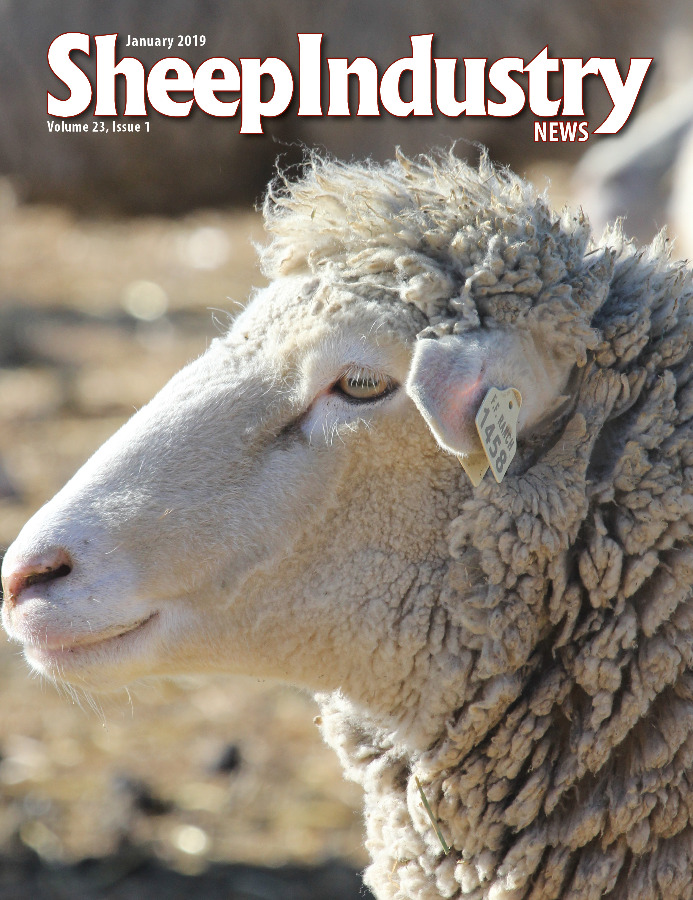Mike Corn, ASI President
Approval of the 2018 Farm Bill in mid-December was definitely a victory. As we’d reported throughout the two-year process, the legislation is as friendly to the American sheep industry as any farm bill in recent memory.
While it’s a small aspect of the overall bill, funding for the development of minor use, minor species pharmaceuticals is a major step forward for sheep production. The bill commits no less than $5 million through 2023 for the development of animal drugs for minor uses and minor species, which includes sheep.
ASI representatives testified before the U.S. House subcommittee on livestock about the need for this program back in March of 2017. As the first and primary proponent of the funding, ASI sought permanent funding for the network of university researchers, animal health companies and the U.S. Department of Agriculture to make sure this provision was included in the final version of the farm bill. The network has produced new products such as the CIDR for artificial insemination, however, the funding was on life support. Lacking this funding request by ASI in the farm bill, the network would have likely disappeared.
There’s no doubt in my mind that this provision will ultimately affect every sheep producer in the United States. The entire industry will benefit from the drugs that will be developed through this funding, and that’s something we can all look forward to in the years to come.
Hand-in-hand with this issue was funding for the Foot and Mouth Disease vaccine bank. ASI joined with its friends in the beef, pork and dairy industries to push for funding that will assure a ready vaccine supply in case of a future outbreak of this deadly disease.
Minnesota veterinarian Cindy Wolf and ASI Executive Director Peter Orwick met personally with Secretary of Agriculture Sonny Perdue on this issue in September 2017. Most English speaking countries have a bank, so it is important that American livestock be availed of this risk management, as well.
The new farm bill also reauthorizes several programs that the sheep industry worked hard to establish in previous versions of the bill.
Chief among them is the National Sheep Industry Improvement Center, which received an extra $500,000 in funding. Additional funding at NSIIC means additional grants to support development and expansion of industry infrastructure.
The bill also reauthorizes the Wool Textile Program, which provides millions of dollars to support key wool customers such as Burlington, as well as the American Wool Council. That funding is now in place and guaranteed through 2023.
Existing disaster relief programs – such as Livestock Feed and Livestock Indemnity and Non Insured acres (NAP) and insurance programs are re authorized including our LRP-Lamb Insurance and precipitation insurance products. The Wool LDP program – the only risk management program on the wool side of the industry – was reauthorized. We actively sought updated rates, however, half a dozen loan programs, including much larger commodities, were held to existing rates. We will pursue other avenues for increasing the efficiency of the program to get it working properly.
We were hoping to see an amendment from Rep. Liz Chaney (Wyo.) on grazing (as it relates to public lands and wildlife) included in the final version of the bill, unfortunately, the forestry title was kicked out of the farm bill in conference with the U.S. Senate.
On behalf of ASI, I’d like to thank Rep. Mike Conaway (Texas) for his excellent work as chairman of the House Agriculture Committee, and his support of the sheep industry. We’ve invited Rep. Conaway to join us at the ASI Annual Convention in New Orleans this month, and will present him with ASI’s Joe Skeen Award. This commemorates the legendary Congressman and sheep rancher from New Mexico and his support of our industry.
I should also point out that the Environmental Protection Agency took steps in December to scale back the President Barack Obama-era Waters of the United States rule that had a negative impact on farmers and ranchers all across the country.
As an early supporter of President Donald J. Trump, I’m happy to report that many of the changes I’d hoped to see in Washington, D.C., have taken place under his administration.



